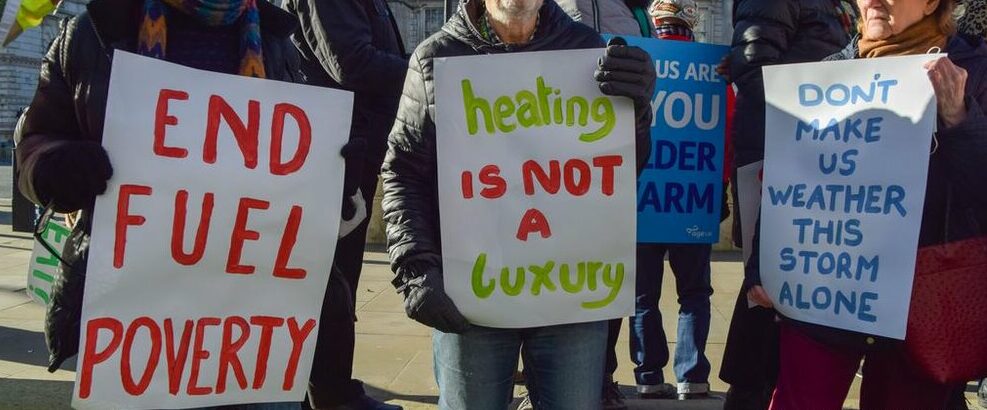Speaking of irresponsible nihilism, Euronews.green declares with delight that “The war on Ukraine ‘may be seen as a blessing’ from a climate perspective, says the head of the UN weather agency. The comment from Petteri Taalas, secretary-general of the World Meteorological Organization, refers to the acceleration in green energies prompted by war-related fuel shortages.” On that reasoning Hitler’s war of genocidal aggression was a blessing from the perspective of accelerating the development of powered flight, radar and sonar, not to mention atomic energy. We cannot help thinking the grotesque lapse of perspective in this declaration gives a telling insight into the way in which climate alarmism has caused people to lose their minds. In reality the invasion has sent advanced nations back to burning coal and their citizens back to burning trash. But to the zealots it’s different. They know it’s going to lead to an acceleration, so surely that they can see it right there before their eyes even when the opposite is happening. Which, presumably, is why Politico awarded Vladimir Putin the top spot in their “Green 28” list for 2023 because “It took a war criminal to speed up Europe’s green revolution.”
To emphasize the radicalism of their position is not to assert that it is some sort of hoax or manipulative plot. On the contrary, it is so sincere and so deeply rooted in their vision of the world that they make statements of a sort no one engaged in trickery would consider contriving and would have no reason to blurt out. Thus Politico tells us:
“clean energy is now a fundamental matter of European security…. ‘Renewables give us the freedom to choose an energy source that is clean, cheap, reliable, and ours,’ EU Green Deal chief Frans Timmermans said less than two weeks after Putin’s tanks rolled in. Seven months on, a POLITICO survey of data on clean energy, energy savings and policies shows that the first signs of that green surge are appearing. Analysts are in little doubt that the change is structural, permanent and historic. ‘We will look back at this situation in 10 years time and see, OK, that was the moment where we really got serious about the green transition and we really had the big green acceleration,’ said Simone Tagliapietra, a research fellow at the Brussels-based think tank Bruegel.”
Just the guy we were going to ask, obviously. Especially as “Simone holds a PhD in Institutions and Policies from Università Cattolica del Sacro Cuore.” Not everyone can say that.
Taalas is cheerful because he too has seen the future and it works. “From the five-to-10-year timescale, it’s clear that this war in Ukraine will speed up our consumption of fossil energy, and it’s speeding up this green transition. So we are going to invest much more in renewable energy, energy-saving solutions,” he burbled, before admitting that, Euronews.green reported, “some small-scale nuclear reactors are likely to come online by 2030 as ‘part of the solution’, he said.”
AP also seemed to feel that Taalas had nailed it. Their version went:
“The comments from Petteri Taalas, secretary-general of the World Meteorological Organization, came as the world is facing a shortfall in energy needs — prompted in part by economic sanctions against key oil and natural gas producer Russia — and prices for fossil fuels have risen. That has led some countries to turn quickly to alternatives like coal. But rising prices for carbon-spewing fuels like oil, gas and coal have also made higher-priced renewable energies like solar, wind and hydrothermal more competitive in the energy marketplace. The energy crunch has also led many big consuming countries in Europe and beyond to initiate conservation measures, and talk of rationing has emerged in some places.”
They offered further rationalizations along the lines of “Taalas said the energy sector currently is responsible for about three-quarters of emissions of heat-trapping greenhouse gases, and he called for a “complete transformation” of the global energy system. He warned that climate change is affecting electricity generation — and it could have an increasing impact in the future. Among the risks, nuclear plants that rely on water for cooling could be affected by water shortages, and some are located in coastal areas that are vulnerable to sea-level rise or flooding.” But what’s really striking is what they did not say. Their reporter didn’t think to interview one person who might take exception to this opinion on practical or moral grounds.
Marc Morano of Climate Depot growled “Putin is the UN’s new Climate Hero. Will Vladimir Putin now get a Nobel Peace Prize like Al Gore did in 2007 in service of the climate?” No. Probably not. It would be too brazen.
Andrew Lawton of True North media commented that “These people really can’t help themselves, can they?” And CTV, in the story that prompted his tweet which was basically an AP story verbatim (indeed even the Euronews.green piece was substantially the AP story, and the fact that you can’t tell the activists from the reporters is not coincidental), was indeed entirely positive about what Taalas had said and why:
“the world is facing a shortfall in energy needs – prompted in part by economic sanctions against key oil and natural gas producer Russia – and prices for fossil fuels have risen. That has led some countries to turn quickly to alternatives like coal. But rising prices for carbon-spewing fuels like oil, gas and coal have also made higher-priced renewable energies like solar, wind and hydrothermal more competitive in the energy marketplace.”
And when it comes to carbon-spewing, well, what’s a few dead civilians?
It’s not that they like Putin. Politico is clear that he’s both a monster and a fool. However, look at the results through their green-tinted spectacles:
“Putin’s miscalculations on the battlefield have been well documented. But he also mistimed his energy war. He attacked Europe’s energy system just as an array of cheap and reliable alternatives became realistic. That’s not only solar and wind, which now generate power at a fraction of the cost of gas; products that even five years ago had barely entered the market, such as heat pumps, are now mature.”
Dare we remind readers the invasion was just eight months ago? A bit hard to believe all these things happened since then, let alone because of it. And in fact others reported Taalas’s remarks with something approaching embarrassment.
Even Euronews.green did add that “Last month, head of the International Renewable Energy Agency (IRENA) Francesco La Camera made similar comments – albeit with a better choice of words.” We respectfully disagree. It was an excellent choice of words, because it states frankly and out loud the vision that made La Camera endorse the same idea in a more prudent and roundabout way:
“In the mid- and long term, the Ukraine crisis will bring an acceleration to the energy transition because governments finally realise that going for renewables is not only good for the environment, jobs, GDP, but also good for ensuring higher energy independency.”
The UN is also into this stuff. “‘As well as the tragic human impacts, the conflict underscores the rising costs of the world’s fossil fuel addiction, and the urgent need to accelerate the shift to renewables, to protect people and planet,’ UN spokesman Stephane Dujarric said.” It’s easy to pillory, and right to do so, although at least in his case he was talking about what it should cause not what it did, and without saying on balance it was good that it happened.
It is crucial to understand that many of those taking this view are plainly convinced, despite the real state of affairs in Europe as a cold, hard winter or set of same approaches, that this famous energy transition is already well under way and is working. As La Camera reveals with his own choice of words, namely “governments finally realize” what wise visionaries like himself have known all along. Which apparently doesn’t include that many governments, especially those in Europe now left brutally exposed by their dependence on Russian natural gas like that of Germany, “realized” this decades ago, and acted on the “realization”, only to discover now that it was actually a delusion and a snare.



It’s not that the climate alarmists have lost their minds, it’s the unmistakable sign that it was never about the climate. It’s always been about domination, i.e. control over our lives. Fossil fuels = prosperity = independence = an unacceptable situation for those who seek to control us under the guise of saving the planet.
James, the uncertainty in the science contrasts starkly with the alarmist rhetoric. They are certain that Gaia has been offended by our profligacy and that redemption requires some sacrifices. For sure they need authoritarian control to kill us effectively. I just wonder how long they last before they too get too close to the crocodile!